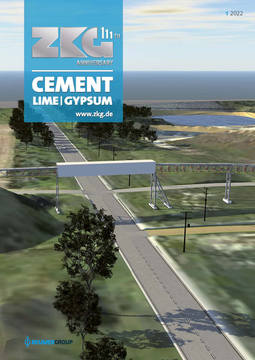A TEC successfully commissions ReduDust® Bypass Dust
Treatment System
Using alternative fuels or Cl-containing raw materials typically require a Cl-bypass system to control the Cl-loop in the pyroprocess. This leads to the production of bypass dust, which contains various types of salts.
To re-use the dust in cement manufacturing, Ssangyong Cement Ind. Co. Ltd. with its plant in Donghae/Korea, has teamed up with A TEC Production and Services GmbH from Austria to install A TEC’s innovative ReduDust® process in their plant. The process will recover salts from the dust and produce bypass dust free of these components, which can be re-used and does not need to be deposited anymore. The ReduDust plant for Donghae has a bypass dust treatment capacity of 35000 t/y and has been commissioned in Q2/2021.
The scope of supply for this order by A TEC includes the engineering services and selected equipment supply incl. the required supervision and optimization services.
Ssangyong Cement Ind. Co. Ltd. is one of the leading manufacturers of high-quality cement in Korea. The plant at Donghae has several state-of-the-art kiln lines, operating with significant alternative fuel rates, in operation. In the plant also the A TEC Rocket Mill™ is in operation to produce high quality solid alternative fuel for the kilns. By using the ReduDust bypass dust treatment system, the plant has realized a novel waste-free Cl-bypass dust concept.
A TEC ReduDust Bypass Dust Treatment
Currently large amounts of bypass dust are produced by cement clinker production systems, especially using alternative fuels, as an intermediate product. As this dust is highly loaded with chlorine and alkaline compounds, the utilization of this dust in the cement mills is limited. Furthermore the disposal of this dust is quite expensive as due to the high chlorine content it is often categorized as hazardous waste. The A TEC bypass dust treatment process (ReduDust) solves this problem as the contaminated bypass dust is used as a resource for the production of pure NaCl and KCl salts. The residual dust is free of these undesired components and can be recycled completely to the cement production without enrichment of the undesired components. So not only the costs for disposal can be saved, also the lost amount of material by the bypass system can be recovered effectfully.





